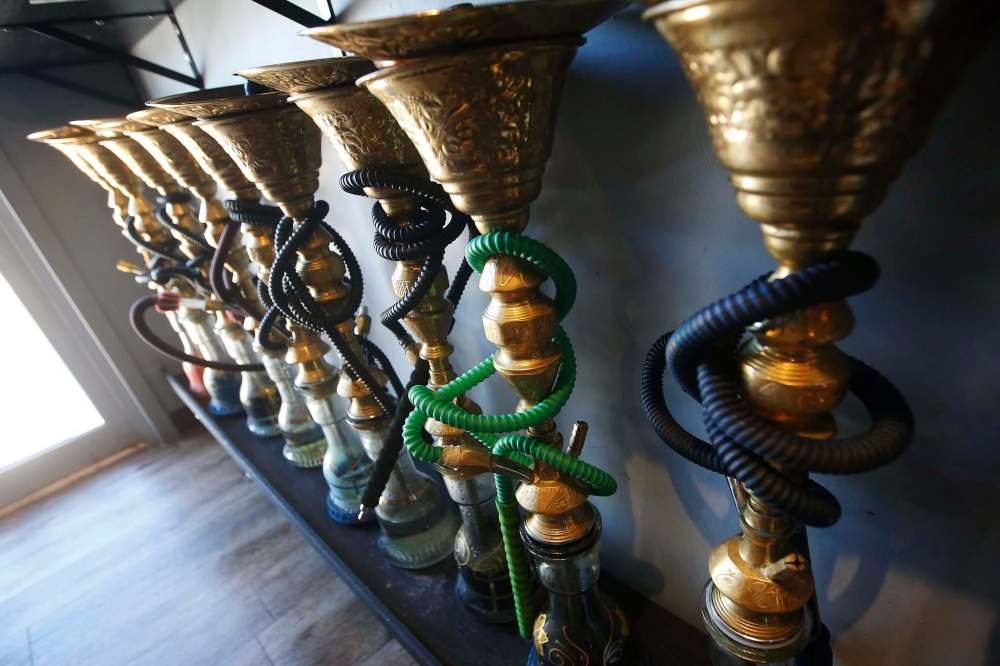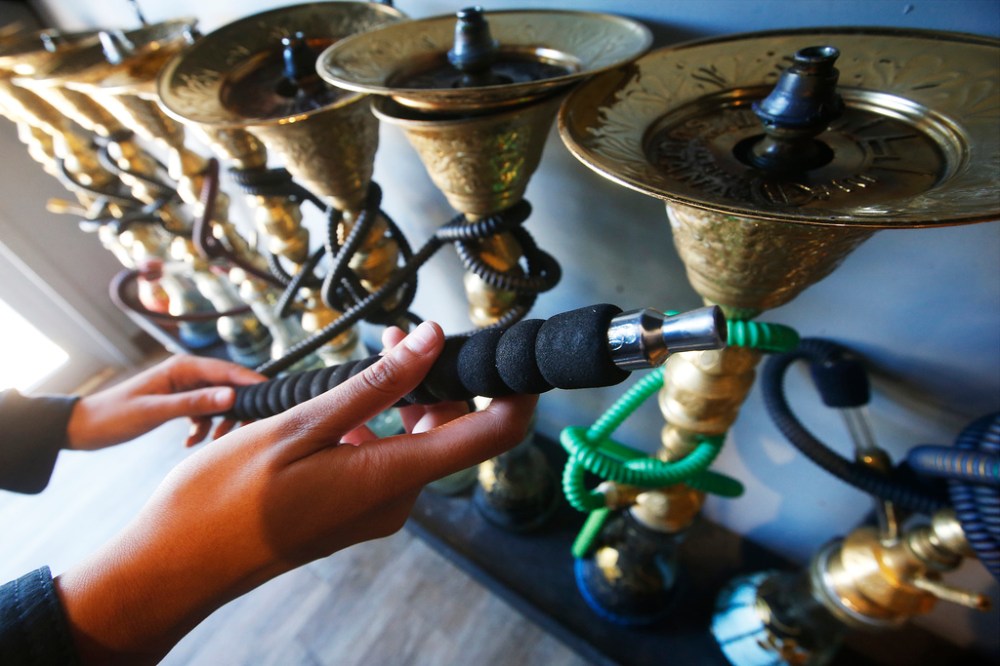Hookah health risks must be considered
Read this article for free:
or
Already have an account? Log in here »
To continue reading, please subscribe:
Monthly Digital Subscription
$0 for the first 4 weeks*
- Enjoy unlimited reading on winnipegfreepress.com
- Read the E-Edition, our digital replica newspaper
- Access News Break, our award-winning app
- Play interactive puzzles
*No charge for 4 weeks then price increases to the regular rate of $19.00 plus GST every four weeks. Offer available to new and qualified returning subscribers only. Cancel any time.
Monthly Digital Subscription
$4.75/week*
- Enjoy unlimited reading on winnipegfreepress.com
- Read the E-Edition, our digital replica newspaper
- Access News Break, our award-winning app
- Play interactive puzzles
*Billed as $19 plus GST every four weeks. Cancel any time.
To continue reading, please subscribe:
Add Free Press access to your Brandon Sun subscription for only an additional
$1 for the first 4 weeks*
*Your next subscription payment will increase by $1.00 and you will be charged $16.99 plus GST for four weeks. After four weeks, your payment will increase to $23.99 plus GST every four weeks.
Read unlimited articles for free today:
or
Already have an account? Log in here »
Hey there, time traveller!
This article was published 14/10/2020 (1888 days ago), so information in it may no longer be current.
Before outlining why Manitoba should ban hookah in public places, it’s important to emphasize this province’s enthusiastic appreciation of diverse cultural traditions. Manitoba doesn’t just tolerate different cultures; it’s renowned for celebrating ethnic differences through a wide range of events and festivals — most notably, Winnipeg’s annual Folklorama — that afford the opportunity to experience different traditions, sample regional cuisines and support artistic expression from different countries.
That context — a province eager to embrace its eclectic tapestry of cultures — is important when understanding why hookah should be prohibited in public places. It’s the hookah bowl that should be extinguished, not the identities of the people who partake in the social activity that has roots in the Middle East, India and Africa.
Hookah establishments in Winnipeg recently rose to unwelcome prominence as locations where COVID-19 was spread during the recreational custom, which involves users sitting in close proximity and inhaling smoke through long flexible tubes capped by mouthpieces.

And last week, five respiratory-health officials collaborated to submit an opinion article to the Free Press (”Time for Manitoba to extinguish hookah”, Oct. 7), in which they called on the city and the province to join five other provinces that have already banned hookah outright in public places. The current pandemic-related prohibition imposed on such establishments has created an opportune moment to follow their advice.
The supporters of the hookah bars and cafes responded that no one is forced to attend the establishments: everyone who enters the doors is choosing to be exposed to smoke. In that way, it’s different from what occurred when smoking was allowed in mainstream bars or restaurants, where non-smokers were exposed to second-hand fumes.
They argue further that without the hookah hotspots, former patrons who want to socialize will migrate to mainstream drinking establishments and indulge in the more unhealthy activity of consuming alcoholic beverages.
Their arguments are understandable, but not sufficiently compelling to leave open the legal loopholes in Manitoba through which hookah smoke can currently rise freely. The reason hookah currently circumvents restrictions is that the bowls are generally filled with a herbal and fruit substance, called shisha, before it is heated with a piece of charcoal. But inhaling shisha and charcoal is more harmful to health than often assumed, according to the respiratory-health officials.

They point to a study that found high levels of lead, chromium, nickel, arsenic and polycyclic aromatic hydrocarbons in herbal shisha. They also quote a World Health Organization study that says: “Shisha smokers in comparison to cigarette smokers would inhale an equivalent of 100 or more cigarettes in one session.”
If it’s illegal to smoke tobacco, cannabis and e-cigarettes/vapour products in public, it seems only fair that the laws be updated to equally prohibit hookah. The health officials seem aware that banning hookah could lead to cultural discontent and, wisely, they included in their ranks Maryam Al-Azazi, a registered respiratory therapist who is also a board member of The Lung Association, Manitoba Inc.
Given her heritage, it’s appropriate to give Al-Azazi the last word on the topic: “As an immigrant myself, I grew up in an environment that normalized the behaviour of hookah use. I have a deep understanding and I sympathize with the complexity of the culture intertwining with this practice. I have purposefully undertaken research on this topic. Understanding the cultural history of hookah and the medical science outlining the significant health risks of hookah use, I ask myself, ‘Is this risk worthwhile?’”










